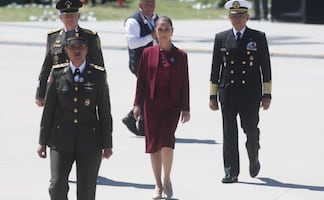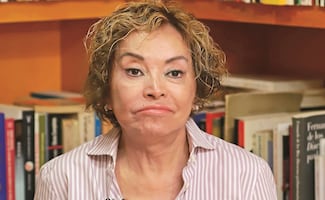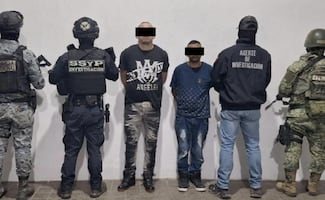Más Información

Sheinbaum: Fuerzas Armadas garantizan que México decida su destino ante presiones globales; nacieron para defender la soberanía, dice

Senado alista debate sobre "pensiones doradas"; van por acuerdo para toparlas en 70 mil pesos mensuales

Secretaría de Marina realiza operativo terrestre y aéreo en la sierra de Badiraguato y Mocorito, Sinaloa; reportan disparos y persecuciones
The World Health Organization's expert group on immunization said on Friday it recommended that countries consider introducing Sanofi's dengue vaccine Dengvaxia in areas where prevalence of the virus was 50 percent or higher.
Vaccination should be done between the ages of nine and 11, but efficacy improved as people got older, Jon Abramson, chairman of the WHO's Strategic Advisory Group of Experts on immunization (SAGE) told a news conference in Geneva.
The vaccine needs to be administered in a three-dose series and SAGE does not recommend its use before 9-years-old, which it said was consistent with current labeling.
Dengue kills about 20,000 people per year and infects hundreds of millions, and it is becoming much more prevalent and widespread.
"The number one main recommendation is that this vaccine is efficacious and safe but should be only used in populations where the disease incidence in the population is at least 50 percent," Abramson said. "So it shouldn't be used in areas with what we would call low transmission.
"The key reason for that is when you look at the efficacy of the vaccine, in those who have not been infected the efficacy is nowhere near as good as in those who were previously infected."
Severe cases of dengue usually occur when people are infected for the second time with a different one of dengue's four serotypes, he said.
The doses of vaccine should be administered at six month intervals.
"That in itself brings up a whole set of implementation issues about how were going to get three doses of the vaccine into these children who usually don't access healthcare three times in a given year."
Each country could make its own decision on whether to use the vaccine, but by SAGE's criteria there would be a need for "many millions of doses", Abramson said.
"I learned yesterday that the company has the capacity to make 100 million doses a year once its manufacturing capacity is fully up."
He said the company had not settled on a price but had promised to make it cost effective, but it was not clear if that meant on an individual or societal basis.
"To get the three doses and get them delivered -- so we're not just talking about the price of the vaccine, it would be cost effective if the cost of delivering those three vaccines into the arms of children... would have to be US$50 or less."
The vaccine is currently registered in Mexico, Brazil, El Salvador, the Philippines and Paraguay, and Sanofi has is seeking regulatory approval in many more countries, a WHO official said.
Noticias según tus intereses
[Publicidad]
[Publicidad]











